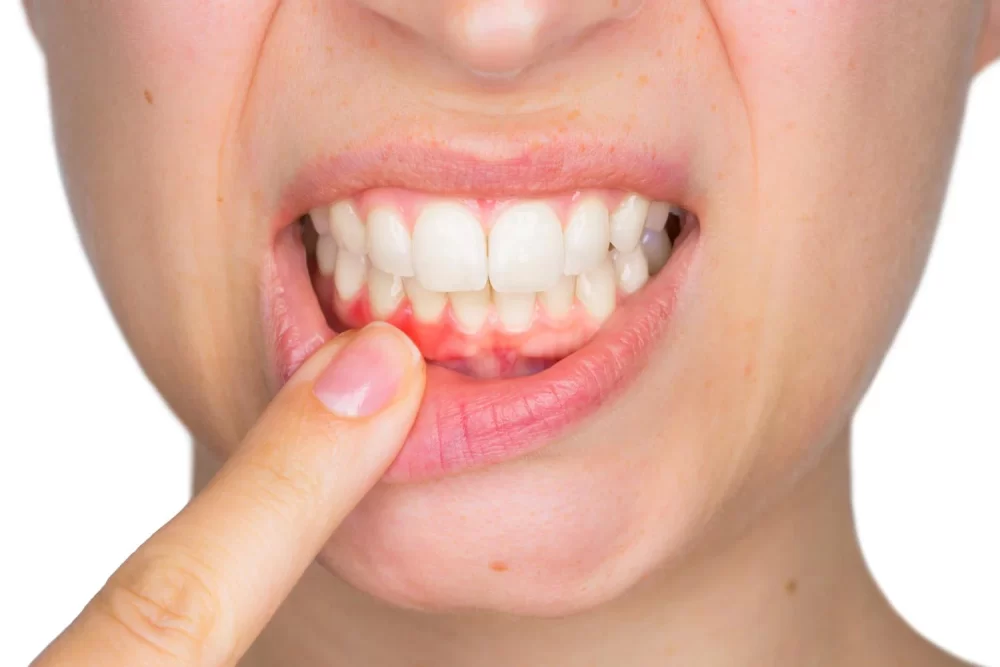
- Causes-of-Bleeding-Gums-During-Pregnancy
- Safe-Treatment-Options-for-Pregnancy-Bleeding-Gums
- Home-Remedies-and-Prevention-Strategies
- Professional-Dental-Care-During-Pregnancy
- Real-Life-Case-Study-on-Managing-Pregnancy-Gingivitis
- Where-to-Find-the-Best-Products-for-Pregnancy-Oral-Care
1. Understanding the Causes of Bleeding Gums During Pregnancy
Bleeding gums during pregnancy is a common concern affecting many expectant mothers. The root cause often lies in hormonal fluctuations, especially the increased levels of progesterone and estrogen. These hormones heighten the body’s inflammatory response, making the gums more sensitive to plaque buildup and bacterial irritation. This condition, known as pregnancy gingivitis, typically appears between the second and eighth month of pregnancy.
Beyond hormones, changes in oral hygiene habits, diet modifications, and increased blood volume can contribute to gum vulnerability. Recognizing these causes is the first step in learning how to treat bleeding gums during pregnancy effectively. Ignoring symptoms can lead to more serious complications such as periodontitis, which may affect not only oral health but also pregnancy outcomes.
1.1 Hormonal Impact on Gum Tissue
The surge in pregnancy hormones causes blood vessels in the gums to dilate, leading to easier bleeding and swelling. This exaggerated immune response, while protecting the mother and fetus, unfortunately makes the gums prone to inflammation.
1.2 Plaque Accumulation and Gum Infection
Since plaque is the primary irritant causing gum disease, its accumulation worsens the inflammation during pregnancy. Even women with previously healthy gums can develop bleeding gums if plaque is not managed properly during this time.
2. Safe Treatment Options for Pregnancy Bleeding Gums
When it comes to treating bleeding gums during pregnancy, safety for both mother and baby is paramount. Fortunately, there are several effective and safe approaches that can help control and reduce gum bleeding without risk.
2.1 Professional Dental Cleanings
Routine dental visits during pregnancy are highly recommended. A professional cleaning helps remove plaque and tartar buildup that brushing alone cannot eliminate. Dentists are trained to provide gentle, pregnancy-safe care that significantly reduces gingival inflammation.
2.2 Gentle Oral Hygiene Practices
Switching to a soft-bristled toothbrush and using fluoride toothpaste specifically designed for sensitive gums can prevent further irritation. Gentle flossing daily also reduces the bacterial load in gum pockets.
2.3 Non-Medicated Mouthwashes
Using alcohol-free, antiseptic mouthwashes can help reduce gum inflammation. Avoid mouthwashes with harsh chemicals or ingredients not recommended during pregnancy.
3. Home Remedies and Prevention Strategies to Manage Bleeding Gums
Besides professional care, certain lifestyle and home remedies can make a significant difference in managing bleeding gums during pregnancy. Prevention is always better than cure, especially during such a sensitive time.
3.1 Balanced Diet Rich in Vitamins
Eating a nutrient-rich diet, especially foods high in vitamin C and calcium, supports gum health. Vitamin C strengthens blood vessels and helps repair connective tissue, while calcium fortifies teeth and bones.
3.2 Proper Hydration and Oral Moisture
Drinking plenty of water helps flush out bacteria and keeps the mouth hydrated, which is essential in reducing gum irritation and promoting healing.
3.3 Avoiding Tobacco and Irritants
Pregnancy is a crucial time to avoid tobacco and foods that can irritate the gums, such as excessive sugary snacks or acidic drinks. These substances exacerbate inflammation and delay recovery.
4. The Importance of Professional Dental Care During Pregnancy
Despite common myths, dental care during pregnancy is not only safe but also vital. Ignoring bleeding gums can increase risks of infections and has been linked in some studies to premature births and low birth weight. Dental professionals provide tailored advice and treatments to ensure oral health is maintained without compromising pregnancy.
4.1 When to See a Dentist
Any sign of persistent gum bleeding, swelling, or pain should prompt an immediate dental visit. Early intervention prevents complications and ensures that pregnancy progresses healthily.
4.2 What to Expect During a Dental Visit
Dentists will perform thorough but gentle examinations, cleanings, and may recommend safe treatments like scaling or polishing. They will also offer personalized oral hygiene instructions adjusted to pregnancy needs.
5. Real-Life Case Study on Managing Pregnancy Gingivitis
Take the example of Sarah, a first-time mother who experienced significant gum bleeding during her second trimester. After noticing the bleeding, she sought help from her dentist, who provided a professional cleaning and recommended a switch to a soft-bristled toothbrush. Sarah also improved her diet by incorporating more citrus fruits and leafy greens. Within weeks, her gums showed remarkable improvement, and she maintained regular dental visits until delivery. Her case illustrates the effectiveness of timely, combined professional and home care in treating bleeding gums during pregnancy.
5.1 Lessons Learned from Sarah’s Experience
Sarah’s story highlights the importance of awareness and proactive treatment. Pregnancy gingivitis is manageable, but it requires commitment to proper oral hygiene and professional support.
6. Where to Find the Best Products for Pregnancy Oral Care
For those seeking the right products to help with bleeding gums during pregnancy, Dentistry Toothtruth offers a carefully curated selection of pregnancy-safe oral care items. From gentle toothbrushes and floss to natural mouthwashes, you can find everything needed to maintain optimal gum health during this delicate time.
Choosing trusted products is essential to avoid harmful chemicals that could affect both mother and baby. Dentistry Toothtruth also provides expert advice and guidance to help you make informed choices tailored to your pregnancy needs.







 TruYou Dental - Franklin Lakes4.0 (778 review)
TruYou Dental - Franklin Lakes4.0 (778 review) Northpark Dental4.0 (99 review)
Northpark Dental4.0 (99 review) Family Dentistry of Westford4.0 (19 review)
Family Dentistry of Westford4.0 (19 review) Perfect Teeth Dental & Orthodontics - Olive4.0 (384 review)
Perfect Teeth Dental & Orthodontics - Olive4.0 (384 review) Nordstrom Orthodontics - Johnston4.0 (69 review)
Nordstrom Orthodontics - Johnston4.0 (69 review) Orchard Dental Group5.0 (163 review)
Orchard Dental Group5.0 (163 review) The Importance of Oral Health Education During Pregnancy for a Healthy Pregnancy
The Importance of Oral Health Education During Pregnancy for a Healthy Pregnancy Best Tips for Brushing Your Teeth Properly for Healthy Gums: Essential Techniques for Oral Health
Best Tips for Brushing Your Teeth Properly for Healthy Gums: Essential Techniques for Oral Health Why Skipping Dental Checkups Can Lead to Bigger Oral Health Problems
Why Skipping Dental Checkups Can Lead to Bigger Oral Health Problems Advantages of Porcelain Dental Restorations
Advantages of Porcelain Dental Restorations How Can Diabetes Cause Tooth and Gum Problems? Preventing and Managing Oral Health Issues
How Can Diabetes Cause Tooth and Gum Problems? Preventing and Managing Oral Health Issues Healthy Habits for Promoting Good Oral Health and Hygiene: Tips for a Healthy Smile
Healthy Habits for Promoting Good Oral Health and Hygiene: Tips for a Healthy Smile